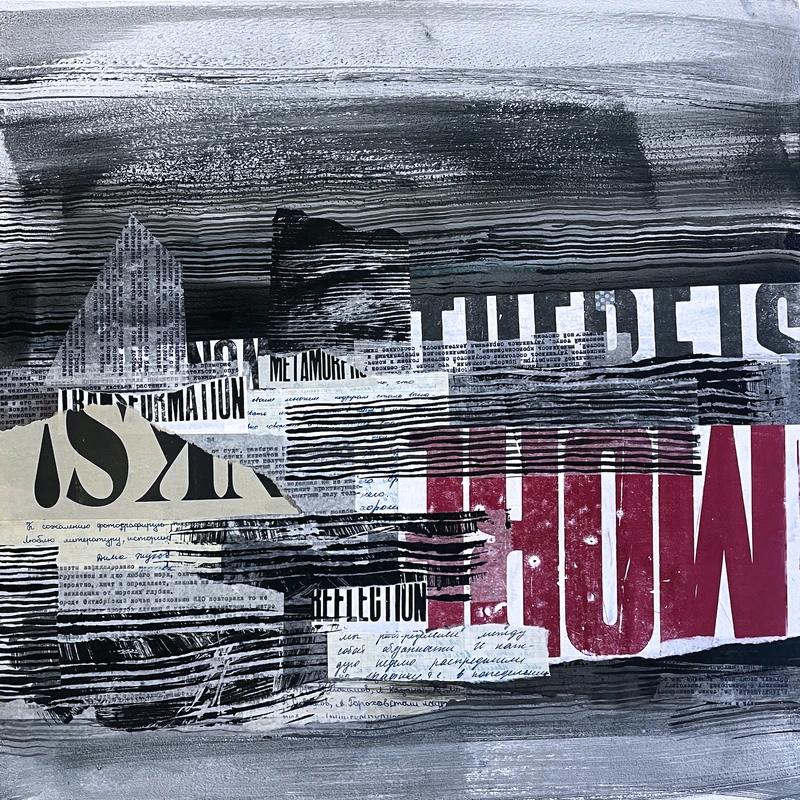Anastasia Tribambuka: Palimpsest
11 Oct-6 Dec 2025
PV 10 Oct 2025


We are pleased to present Palimpsest, a collection of mixedmedia collages by Anastasia Tribambuka, that act as a record of memory, presence, and absence. Interweaving fragments of personal and collective stories, the exhibition explores the shifting patterns between us and the fragile traces that remain.
Palimpsest /pa· limp· sest/
A manuscript or piece of writing material on which later writing has been superimposed on effaced earlier writing
Something reused or altered but still bearing visible traces of its earlier form.
Anastasia’s work inhabits overlapping thresholds, where lives and histories bleed into one another, forming a perceptual overlay that she names her palimpsest: a map of the subconscious inscribed in fragments.
We don’t think in straight lines. There’s layers of memory, impressions, dreams and echoes of some other times and places. There’s a place that reminds of another place, or a smell that transports you to another time. When this person’s voice has the same edge as someone long gone. When a stranger’s eyes briefly hold the soul of a childhood friend. A sunset in London that brings New Delhi alive, or a crack in the wall in Hastings that suddenly feels like a ruin near Vyborg…’ - Anastasia Tribambuka
The materials that ground Anastasia’s works are themselves marked by complex histories. Samizdat papers typed on by her grandmother in Soviet Leningrad during the 1980s reappear here, responding to children’s letters written to socialist magazines. Once serving as instruments of propaganda, these are now reclaimed as fragile relics of resistance and play. They are brought into dialogue with fragments gathered during Anastasia’s later travels; train tickets from Indian, Tamil newspapers, handprinted monotype textures, and sketchbook musings. All of which slip into Anastasia’s palimpsest of broken houses and phantom histories.
For Anastasia, collage is a form of listening. With a sense of anarchic resistance, historic and hierarchic importances are broken down. Materials are destroyed and reformed, speaking in their own voice but also coming together in a process of interference and contradiction. This challenges memory versus erasure, revealing memory’s unpredictable hauntings. Palimpsest does not reconstruct history but evokes its afterimages
Nothing is sacred, and everything is. Just fragments, echoes, accidents. Torn paper, gestures, ghosts of drawings past. - Anastasia Tribambuka
Anastasia Tribambuka: Palimpsest press release
Download